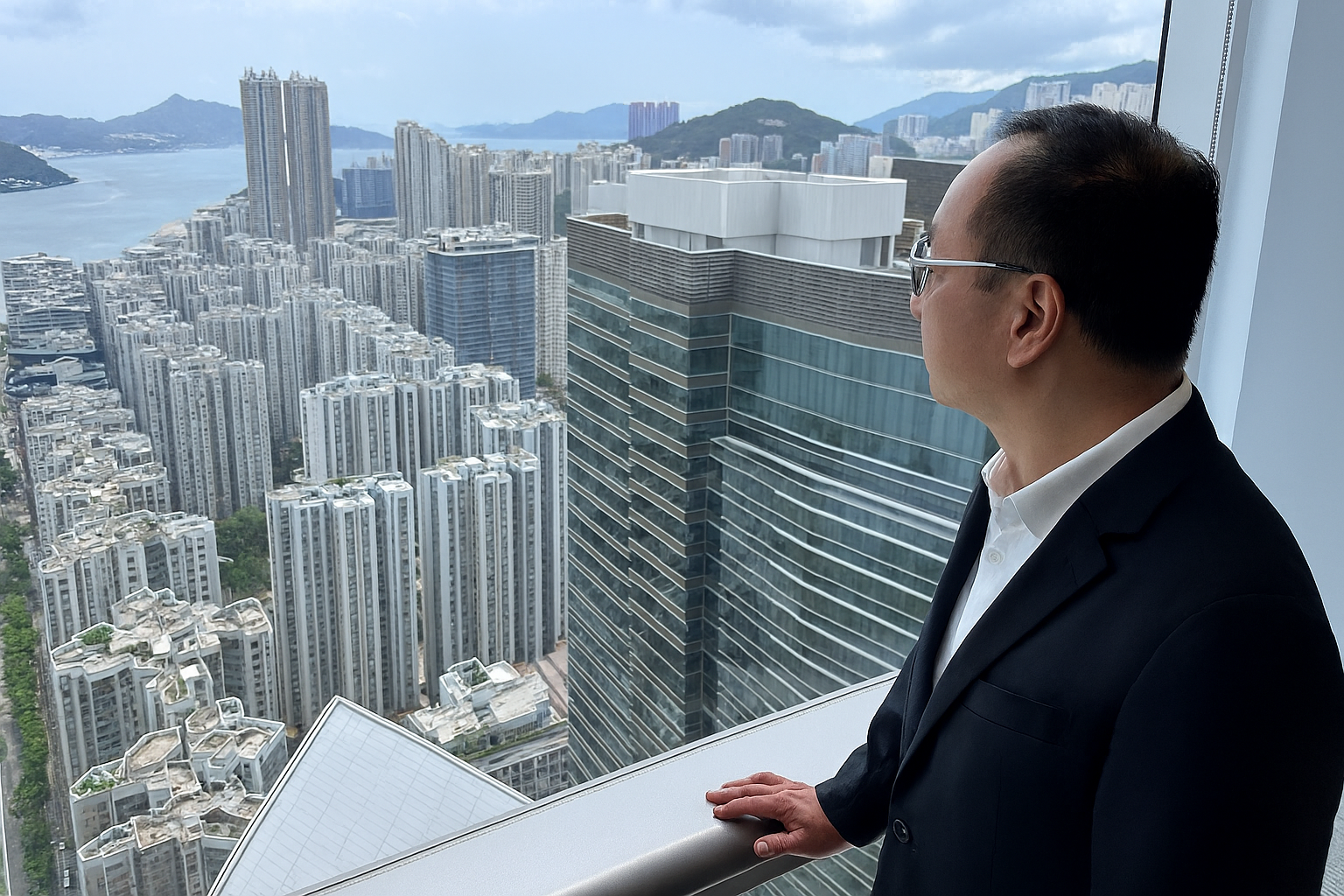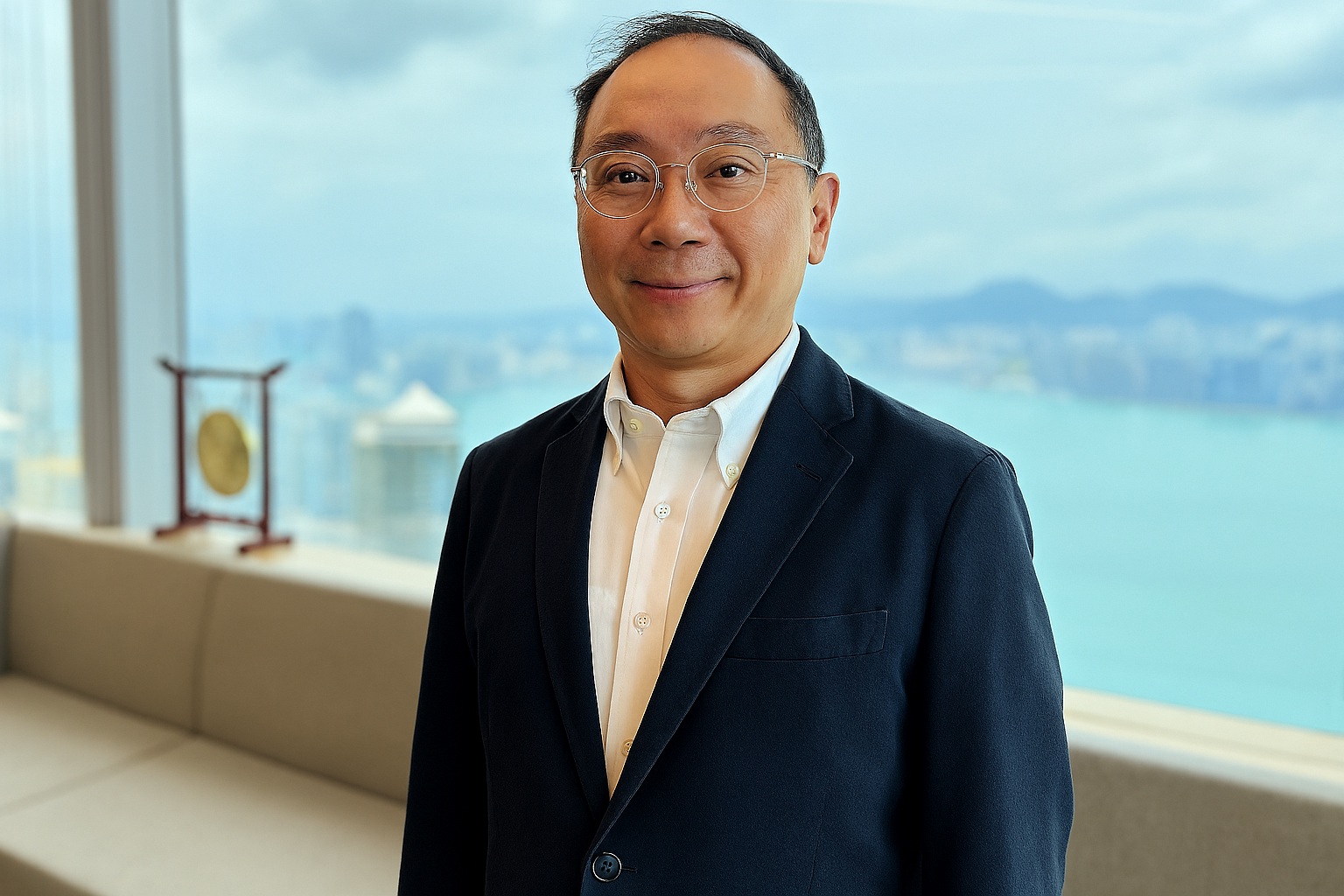Full circle: Martin Au-Yeung on coming home, building resilience, and the future of FM in Asia

When Martin Au-Yeung looks out the window of FM’s new Hong Kong office in Quarry Bay, he sees more than just the skyline. He sees his childhood.
“I can literally see the apartment building I grew up in,” he says, smiling. “It’s surreal. Everything’s come full circle.”
Born and raised in Hong Kong, Martin left at 18 when his family moved to Canada. He studied chemical engineering at the University of British Columbia and joined FM straight out of school. “FM was my first employer—and still is,” he says. “I started as a field engineer, then moved into underwriting and client services, focusing on specialty industries like power generation, mining, and pulp and paper.”
Over the years, Martin climbed the ranks, eventually overseeing underwriting operations across Canada. Now, 35 years later, he’s back in Hong Kong as FM’s branch manager and regional head for North Asia, overseeing operations in Hong Kong and Korea.
A new view
Martin’s return coincides with FM’s move to a new, state-of-the-art office at One Taikoo Place in Quarry Bay—an exciting evolution from the company’s previous cross-harbour location in the vibrant heart of Kowloon.
“Along with everything else involved in the relocation from Vancouver, I found out we’d moved to Quarry Bay. It didn’t tweak at first, but I looked it up on Google Maps and realized it’s five minutes from where I grew up.”
The area has transformed dramatically. “Back then, it was all factories—concrete buildings, chimneys, black smoke. Now it’s a modern business district with high-rises and sustainability-focused design. It’s a completely different world.”
FM’s footprint in Hong Kong
FM has had a presence in Hong Kong since the early 2000s, originally using the city as a launchpad into greater China. Hong Kong has remained a strategic hub for Chinese companies to source out global risk transfer solutions.
FM established its presence in Hong Kong in the early 2000s, originally leveraging the city’s global connectivity as a gateway into Greater China. Today, Hong Kong remains a vital hub where Chinese enterprises seek sophisticated, international risk transfer solutions.
“For years, we supported global programs with Hong Kong personnel,” Martin explains. “But now, for the first time, we have a full-time client service team based here. That proximity to clients and brokers makes a huge difference.”
The local team is small but mighty—an account manager, an account engineer, and a full-time claims specialist. “It’s a lean team, but we’re growing. Our vision is to strengthen our local presence and double down on market leadership.”
Why Hong Kong still matters
Martin is bullish on Hong Kong’s future. “It’s a free trade port with a low tax environment. That makes it incredibly cost-effective for doing business,” he says. “It’s always been a gateway—for international companies entering Asia and for Chinese companies going global.”

Martin sees Hong Kong and Singapore as friendly rivals. “We’re similar in many ways—both financial hubs, both resilient. But Hong Kong has a unique energy. It’s fast-paced, international, and deeply rooted in Chinese culture.”
Risks and resilience
When asked about the biggest risks facing Hong Kong’s commercial property owners, Martin doesn’t hesitate.
“Climate is a big one. We’re on the coast, and while our buildings are incredibly resilient—mostly reinforced concrete—there’s a risk of complacency. People think, ‘We’ve survived typhoons before, we’ll be fine.’ But it’s the secondary effects—like flash floods—that catch people off guard.”
He recalls a recent torrential downpour that overwhelmed parts of the city. “Some companies were prepared. Others weren’t. It’s a reminder that just because something hasn’t happened yet doesn’t mean it won’t.”
FM’s role, he says, is to educate. “We help clients understand the risks, quantify the potential impact, and build robust business continuity plans.”
“Hong Kong has a unique energy. It’s fast-paced, international, and deeply rooted in Chinese culture.”
The supply chain puzzle
While Hong Kong no longer manufactures much domestically, its businesses are deeply embedded in global supply chains.
“Most of the manufacturing has moved to China or Southeast Asia,” Martin says. “So the supply chain risks aren’t local, but they’re still critical. Our clients need to understand how to respond to disruptions—how to reroute, how to recover. That’s where FM can really add value.”
Advice for the next generation
Martin’s journey—from engineer to regional leader—isn’t typical, but it’s not impossible either.
“I never imagined I’d end up in insurance,” he admits. “But FM is a place where curiosity is rewarded. If you’re open to learning, there are so many paths.”
His advice to young(er) graduates and professionals? “Be curious. Learn what your colleagues do, and do well. Understand the markets and the business models. That knowledge opens doors.”
And for engineers who might not see insurance as a natural fit?
“I was one of them,” he laughs. “But here I am. If you’re willing to explore, the opportunities are endless.”
